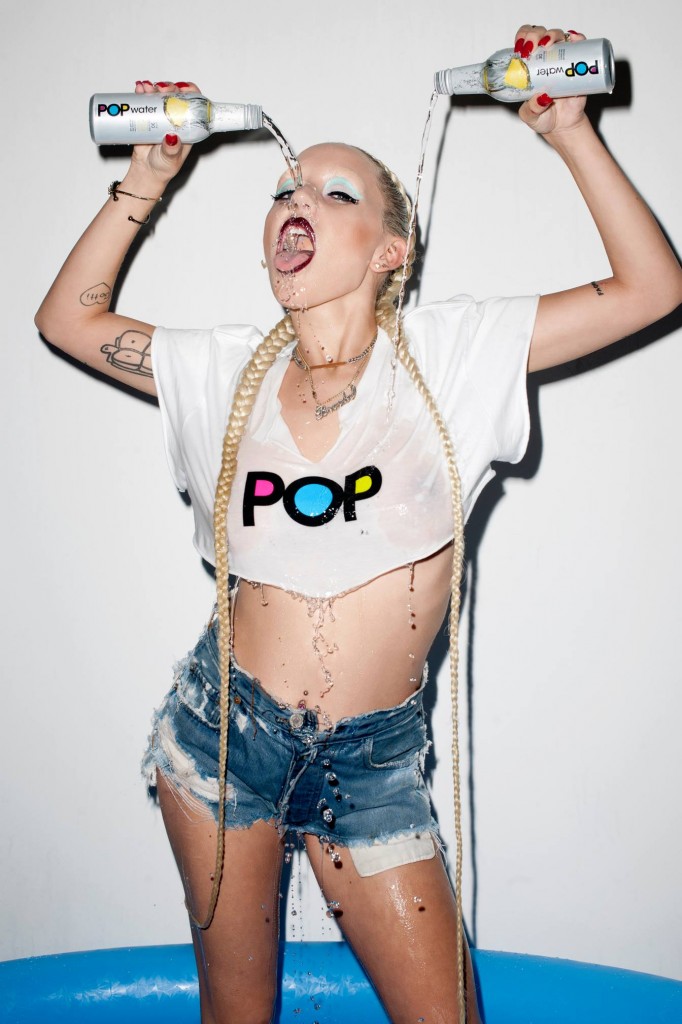Is that an ‘80 Opus One you’re sipping? No, no, a ‘47 Cheval Blanc?

None of the above, Bartholomew. It’s a Coca-Cola.
You just might hear a conversation like this at some deranged cocktail party after news broke that George Riedel has created a custom glass for Coke. Riedel is the owner of the namesake company that manufactures specialty glassware designed to enhance aromas and flavors of wines and spirits.
While Riedel recently began making glasses for craft beers as well, he said in an article by Venessa Wong for Bloomberg Businessweek that working with Coke has long been a dream of his and that it’s the most exciting project in his career. Now, isn’t that adorable?
“The new Coca-Cola glass is designed to ensure the right balance, which in Coke means ‘sweetness, acidity, minerality and effervescence,’” Wong writes.
Effervescence can be found not just in Coke, but also, apparently, in the geezers. People aged 65 and older have never been more fit or mentally active, and they’re continuing to spend on products that reduce the signs of aging. Diana Cowland, senior analyst of health and wellness for Euromonitor International, writes that despite the widespread demand, functional food and drink marketers could do a better job of meeting the interest.
“It is well known that the aging population remains underserved in terms of functional food and drink products,” she writes.
Cowland writes that while awareness has decreased the number of deaths related to cardiovascular health, there’s room for innovation. Greater focus could be adhered to omega-3 fatty acids, vitamin C and soy protein, which has been known to reduce cholesterol and body weight, among other benefits, according to the National Center for Biotechnology Information.
While it’s a not-so-narrow projection, Cowland nonetheless notes that Western Europe, North America and Australasia are the regions with the greatest potential to boost retail value.
“An increase in innovation has led to a greater variety of products targeting the aging demographic,” she writes. “However, functional food and drink products can only truly be a success if, through strong efficacy and growing sales, they ultimately contribute to improving healthy life expectancy.”

Taking only a slight divergence from the morning soup and brewers droop of parklife, Alex James, the bassist of Blur, has applied for use of the trademark “Britpop” for a forthcoming line of sodas.
James, who runs a farm in Oxfordshire, England, and sells artisan cheese, submitted an application for the trademark this past October and it was published on Friday. The application mentions non-alcoholic beer, soda water and sherbet beverages, which Harriet Gibsone and Tim Jonze of The Guardian liken to the “drug-fueled overindulgence” of the Britpop music scene. James’ plans could also call for alcopops, such as alcohol with fruit, cream liqueurs and tequila.

Speaking of pop, this time the American kind, Fast Company recently profiled Troy Carter, the former manager of Lady Gaga. While the vast majority of the feature (and, seemingly, Carter’s life) orbits the glitz of the tech and entertainment industries, it also discusses his plans with Pop Water, the low-calorie soft drink that he founded in October 2012.
Danielle Sacks writes about the weekly Pop Water team meeting, which evokes Terry Richardson, the famous, lascivious photographer whom Carter hitched as the brand’s creative director.
“Fourteen people — including expats from Vitaminwater, Jones Soda and Gaga — are gathered around a screen, looking at a pair of breasts that leak out of a white crop top emblazoned with the word pop. It’s eye-catching, but there’s much more work to do,” Sacks writes. “The head of sales informs Carter that supermarket chains like Albertsons and Whole Foods have already committed to their brands for 2014, shutting out Pop Water.”
Naturally, as these paint-the-hero profiles tend to go, Carter brushes off the news and notes that Lady Gaga got started at one club. He also mentions that the beverage industry is far less cluttered than the entertainment industry (he really said it, fair readers).